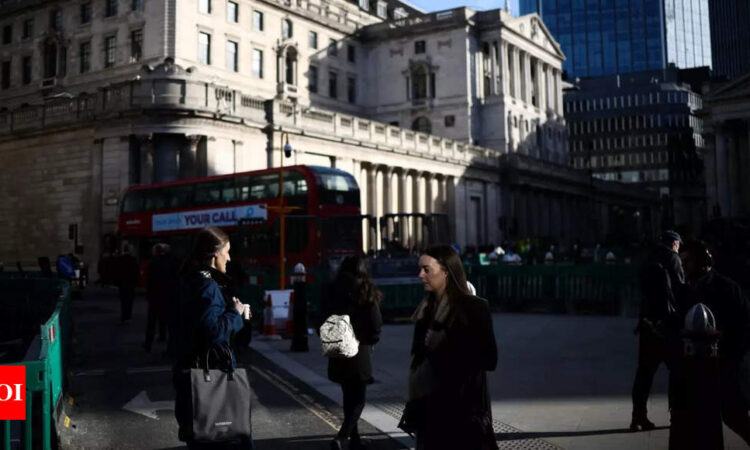
Generation Z’s reputation for monkish living —smoking and drinking far less than their predecessors — is turning into yet another problem for the UK chancellor of the exchequer Jeremy Hunt.
The decline of so-called “sin taxes” on tobacco and alcohol in recent decades have left a $17. 1 billion (£14 billion) hole for the treasury to fill as younger generations switch away from cigarettes to vapes and turn off the booze altogether.
The government would have taken in an additional £9. 3 billion in revenue from tobacco duties and £4. 7 billion for alcohol if the level of income from those levies had remained stable since 2002,according to a Bloomberg analysis of official estimates.
The findings underscore the challenges facing Hunt from a fast changing society and tectonic generational shifts. He also faces the task of pivoting the Treasury away from fuel duties as the auto industry shifts from petrol and diesel vehicles toward ones powered by electricity.
Revenue from tobacco now makes up just 1% of total public sector receipts, down from 1. 9% two decades ago. Alcohol brings in 1. 3% of receipts, shrinking from 1. 7%.
The result has added to the burden on those who pay income and corporation taxes, which are doing the heavy lifting in restoring the country’s fiscal health. The billions lost from the shift is enough to pay for both the child care benefits and business investment incentives that Hunt has announced.
Chris Etherington, partner and tax expert at RSM, said the shifting tastes of younger Britons means that more revenue from these sin taxes is likely to come under threat in the future. “If it’s helping the population to live a healthier lifestyle, then it hopefully has slightly wider benefits in terms of keeping people in better health. ”
The Office for Budget Responsibility is now expecting revenue from tobacco duties to decline even in cash terms in the coming years as smoking rates continue to plunge. In its March forecasts, it slashed the amount it expects the Treasury to generate from tobacco in the next five years by an average of £800 million per year.
Smoking rates have tumbled across the age spectrum in the last decade, but Gen Z are stubbing out the habit most. No group has seen a bigger decline than the youngest. Just 13% of 18 to 24-yearolds said they smoke cigarettes in 2021, compared to 26% a decade earlier, says the Office for National Statistics. They are also the most likely to be a daily or occasional user of e-cigarettes, prompting the government to even consider a vaping tax.
The decline of so-called “sin taxes” on tobacco and alcohol in recent decades have left a $17. 1 billion (£14 billion) hole for the treasury to fill as younger generations switch away from cigarettes to vapes and turn off the booze altogether.
The government would have taken in an additional £9. 3 billion in revenue from tobacco duties and £4. 7 billion for alcohol if the level of income from those levies had remained stable since 2002,according to a Bloomberg analysis of official estimates.
The findings underscore the challenges facing Hunt from a fast changing society and tectonic generational shifts. He also faces the task of pivoting the Treasury away from fuel duties as the auto industry shifts from petrol and diesel vehicles toward ones powered by electricity.
Revenue from tobacco now makes up just 1% of total public sector receipts, down from 1. 9% two decades ago. Alcohol brings in 1. 3% of receipts, shrinking from 1. 7%.
The result has added to the burden on those who pay income and corporation taxes, which are doing the heavy lifting in restoring the country’s fiscal health. The billions lost from the shift is enough to pay for both the child care benefits and business investment incentives that Hunt has announced.
Chris Etherington, partner and tax expert at RSM, said the shifting tastes of younger Britons means that more revenue from these sin taxes is likely to come under threat in the future. “If it’s helping the population to live a healthier lifestyle, then it hopefully has slightly wider benefits in terms of keeping people in better health. ”
The Office for Budget Responsibility is now expecting revenue from tobacco duties to decline even in cash terms in the coming years as smoking rates continue to plunge. In its March forecasts, it slashed the amount it expects the Treasury to generate from tobacco in the next five years by an average of £800 million per year.
Smoking rates have tumbled across the age spectrum in the last decade, but Gen Z are stubbing out the habit most. No group has seen a bigger decline than the youngest. Just 13% of 18 to 24-yearolds said they smoke cigarettes in 2021, compared to 26% a decade earlier, says the Office for National Statistics. They are also the most likely to be a daily or occasional user of e-cigarettes, prompting the government to even consider a vaping tax.
add a comment






